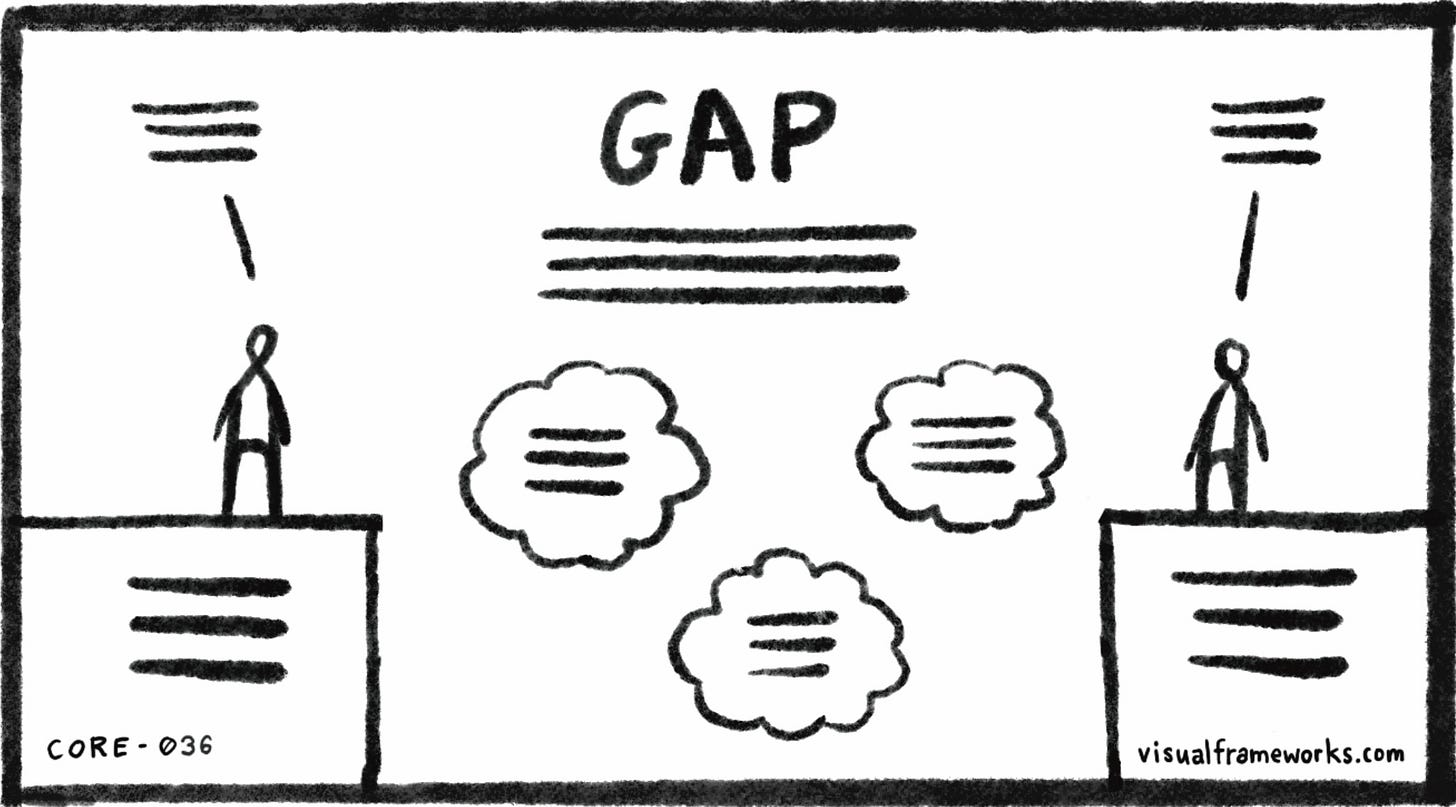The Monday memo is food for thought to fuel your week.
Hi everyone,
Do you ever think, What’s wrong with everyone in the world today? Why do people deny such obvious facts? Has the world gone mad? Sometimes it seems like people are crazy. And there is so much at stake. If only you could figure out a way to change their minds.
Today I’d like to ask you to take a step back. Seriously, how hard is it to have a thought like “I’m right, and it’s everyone else who needs to change?”
You know what’s hard? Getting to know people who vehemently disagree with your worldview. People from different backgrounds, with different experiences. People who have different beliefs, and who have their own reasons for thinking differently than you.
How do you bridge that gap?
Your beliefs may be on the mark. You may have the right answers. But people want to come to their own conclusions, and nobody likes a know-it-all, even (maybe especially!) when they’re right. If you lack humility and curiosity, think about how others will perceive that. And isn’t that exactly what infuriates you about other people when they disagree with you?
Even if you “know” you’re right, if you want to change someone’s mind, forget it. You can’t change other people’s minds. Only they can change their minds. And if you want them to do that, you need to make an effort to understand their point of view.
People won’t listen to your explanations until they feel understood. And they won’t share their feelings if they don’t trust you.
Beliefs are funny things. We think they’re about facts. But beliefs are really about feelings. People believe what they believe because they want to feel a certain way, and they want to live in a world that feels that way.
My dad was a climate change denier. I tried sharing facts with him but as an engineer and scientist, he was suspicious of my facts. He knew a lot about science, and about how facts are made. And in science, facts are always provisional, always subject to change. Even in the best of circumstances, facts are fallible, because there’s always more evidence to be found, more theories to be explored, more unknowns.
I made progress with my dad when I asked him WHY his beliefs on climate change were so important to him. Why, I asked, did he even care about climate science? Why did it matter to him?
He answered instantly. He didn’t even need to think about it. It wasn’t about climate at all for him. It was about jobs. “They are taking jobs away,” he said. Understanding his perspective helped me see where his beliefs were coming from.
Exercise.
So here’s your exercise for the week: Get in touch with your ignorance.
We all have our own way of determining what’s real and what’s right. People have different experiences and they pay attention to different things. Based on their experiences they develop theories and form their own conclusions. In order to understand why they believe what they do, you need to take them seriously and suspend your disbelief long enough to unpack how they came to their beliefs. If people trust that you are truly seeking to understand, without judgment, they will open up to you.
If you think someone is wrong, don’t attack their position with facts or logical arguments. Try to understand the feelings behind the facts.
Beliefs arise not from facts but from unmet needs. See if you can discover the feelings behind the facts. If people feel understood, they’ll be more open to listening to alternative ideas.
You don’t have to agree in order to listen. All you need to do is temporarily suspend your disbelief. This isn’t hard. Think about when you watch a science fiction movie. You don’t sit in your seat, picking apart the science. At least, I hope you don’t.
Instead, you willingly suspend your disbelief and put yourself into the story. If you didn’t, the story would be pointless and you wouldn’t enjoy it. Suspension of disbelief is a way to truly engage with a story, to put yourself into the story and let yourself be carried away. When you leave the movie, you come back to the real world.
In conversation, suspension of disbelief will make you a better listener.
By suspending your disbelief, you can make space to try to understand how other people experience the world. Their fears, their anxieties, their wants, needs, and hopes. If you let the story carry you away, you will listen better, you will understand better, and when you’re done listening, you can come back to the real world with a better understanding and a new way to think about things.
If something doesn’t make sense to you, then you you’re missing something. See if you can figure out what that is. You’ll figure it out when you approach other people with openness, humility, and curiosity. If you are able to suspend your disbelief and try to imagine what it feels like to be them, you’ll walk away with a new understanding.
Let me know how it goes.
Upcoming:


To kick off July we will hold a URL Roundup, hosted by
. Chelsea invites you to think about domain names you may have purchased but are not using. In the URL Roundup we will showcase, share and vote on domain ideas, and think together about how we might get them out of the stable and off to the races!Buy a ticket for the URL Roundup or become a member today for free access to all Collaboratories.
Members get access to all Collaboratories as well as Collaboratory recordings, past and present, and our email archive. It’s only $20/month or $200/year. Become a member by upgrading your subscription.
As of this week we have 66 members. The first 100 members will lock in the $20/month, $200/year rate.
If you’re already a member, thank you. You’re making this possible.
More information for members is below the fold.




